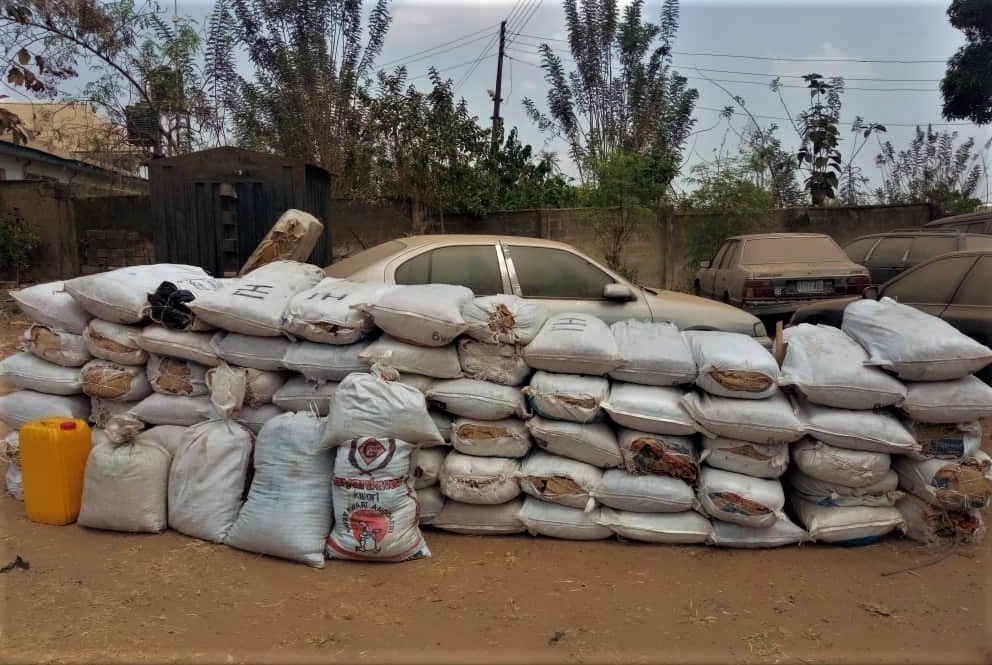‘Cannabis, most widely used substance in Nigeria in 2017’
The United Nations Office on Drugs and Crime (UNODC) has revealed that Cannabis was the most widely used substance in Nigeria in 2017. Mr William Wu, UNODC’s Representative, said in Lagos on Wednesday that this was according to a report on a survey conducted by UNODC on “Drug Use in Nigeria 2018’’. Wu spoke at […]

File photo: 73 bags of cannabis seized in Osogbo weighed nearly 700kg combined
The United Nations Office on Drugs and Crime (UNODC) has revealed that Cannabis was the most widely used substance in Nigeria in 2017.
Mr William Wu, UNODC’s Representative, said in Lagos on Wednesday that this was according to a report on a survey conducted by UNODC on “Drug Use in Nigeria 2018’’.
Wu spoke at a one-day conference organised by the Alcohol and Drug Addiction Referral Services in collaboration with Echoes of Mercy and Hope Foundation Outreach in Lagos.
The News Agency of Nigeria (NAN) reports that the conference was in commemoration of the International Day against Drug Abuse and Illicit Trafficking marked annually on June 26.
According to the study, the high use of cannabis was followed by pharmaceutical opioids mainly tramadol, and to a lesser extent, codeine.
Quoting the study, Wu said: “In 2017, 10.6 million Nigerians used Cannabis; 4.6 million used opioids; 2.4 million used cough syrup inappropriately as drugs; 481,000 people used tranquelisers and sedatives.
“Also, 34,000 Nigerians used ecstasy; 3000 Nigerians used solvents and inhalants; 238,000 used amphetamines and perspective stimulants, while 92,000 Nigerians used cocaine in 2017.
“Proportionally, more men than women have used drugs in Nigeria in 2017.
“One in four drug users in Nigeria is a woman, while men are seven times more likely than women to use cannabis.
“The gender difference is in the non-medical usage of pharmaceutical opioids– such as tramadol, codeine and morphine, tranquilizers and cough syrups containing codeine or dextromethorphan is less pronounced.
“Men are also more likely than women to be high risk drug users, including those who inject drugs.’’
The UNODC representative called for the establishment of a drug observatory that could regularly collate data and analyse the drug situation in the country.
In his comments, Mr Dele Balogun, representing Dr Tony Rapu, Chairman, Board of Trustees, Freedom Foundation, called for more concerted approach to tackle the menace. (NAN)
